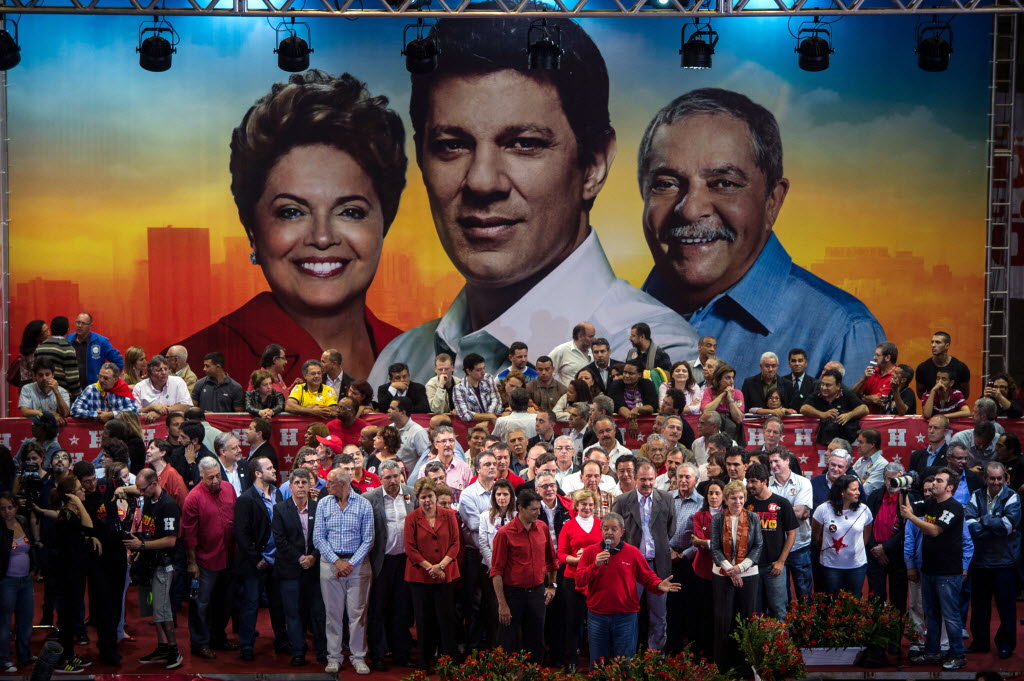 Fernando Haddad, Lula and Dilma’s man, will run São Paulo. But across the country, the sprawling multi-party system became even more complicated.
Fernando Haddad, Lula and Dilma’s man, will run São Paulo. But across the country, the sprawling multi-party system became even more complicated.
By last Sunday every city in Brazil had selected a new mayor. This will affect everyone here differently, as they will be governed at the local level by one of the 19 – nineteen! – parties running the country’s city halls. But what happened on a national level?
There are some good background sources, such as our LA Times story, Gabriel Elizondo’s blog, and Fernando Rodrigues’ excellent and extended analysis (in Portuguese) of who won and lost out this electoral season.
But here’s a stab at drawing some broad lessons about shifts in Brazil’s politics.
1. Lula still matters, a lot. The big take-away headline is that the PT (Worker’s Party) took back South America’s most important city after eight years. This was not expected. Fernando Haddad was way behind at the outset of the election, after being hand-picked by Lula. Lula and Dilma’s campaigning paid off in a big way, in what turned out to be a spectacular victory for the PT. The Mensalão looks like it played its part, but did not take down the party like some thought it would.
2. But Lula is not all-powerful. His man lost sorely in a close election in Salvador, the country’s third-largest city, and the PT candidate lost Fortaleza too.
3. More parties, more mess? Brazil’s multi-party system is notoriously complicated, notoriously hard to explain, and notoriously difficult to govern. This has gotten worse. The amount of actively ruling parties has gone from 16 to 19. This means more of the shifting alliances and allegiance-buying that probably in some ways has led to Brazil’s historic problem with corruption.
As this excellent guest post at the FT states:
The proliferation of political parties makes governing the country a particularly difficult and costly task. To pass legislation, presidents, governors and mayors often depend on heterogeneous governing coalitions of political parties whose allegiance has to be bought over and over again with pork and/or patronage jobs.
To get a sense of how messy things are, consider the following. The “Social Democratic Party” is different than the “Social Democratic Party of Brazil”. The former was recently created by the outgoing mayor of São Paulo as he split off from the right-wing “Democrats”, which is very different than the “Democratic Movement Party”, which has no ideological allegiance whatsoever but tends to always move towards power. The “Social Democratic Party” opposed Haddad in the election but might now support him in power. Our new vice-mayor is from the Communist Party of Brazil (different from the Brazilian Communist Party), which supported the new regressive Forestry Code. All of this feels a bit like satire.
[youtube gb_qHP7VaZE]
All of this makes governing the country much more difficult for Dilma. Many intelligent people think that she knows which challenging reforms Brazil needs to undertake, but that she also knows how outrageously difficult it would be to try to get these things through Congress. Easy to see why.

